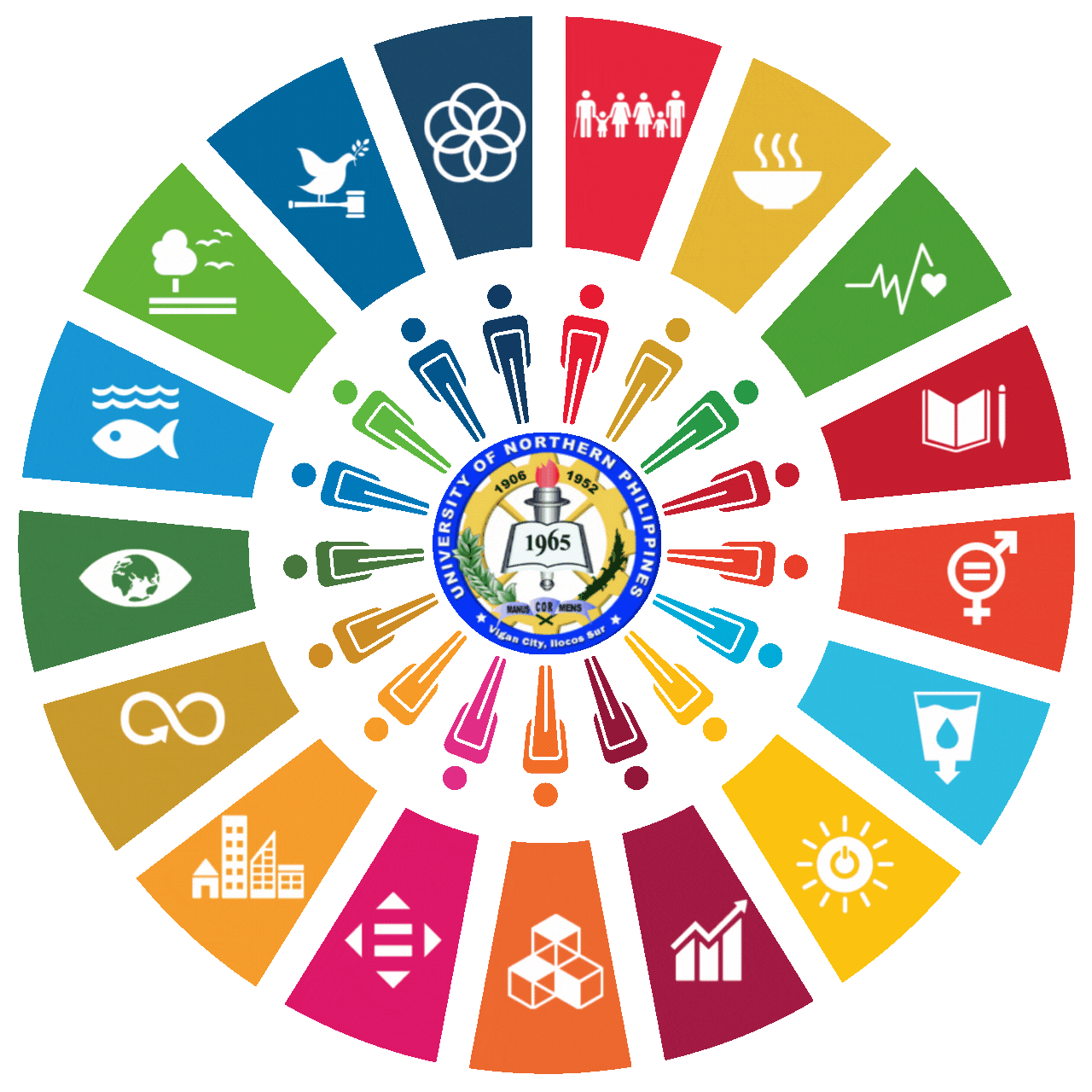

SDG 10 - REDUCED INEQUALITIES
The University of Northern Philippines (UNP) demonstrates a strong commitment to Sustainable Development Goal 10: Reduced Inequalities through various initiatives, and the formulation of policies.
UNP actively works to reduce inequalities within, and among its stakeholders by implementing inclusive policies, and programs. The University’s admission standards welcome all individuals, regardless of age, sex, disability, race, ethnicity, origin, religion, or economic status, ensuring equal access to quality education.
To address educational disparities, UNP partners with underserved communities, providing educational support, and resources to those who needs it the most. One notable endeavor is the SEA-Teacher Project which facilitates international student exchanges, contributing to reducing inequalities in access to quality education across borders.
UNP promotes equal opportunities through awareness campaigns; the University’s entry in a short film contest on statistical literacy empowers individuals, and communities to make informed choices, reducing knowledge inequalities, strengthened research collaborations; the 6th Regional Research Congress was celebrated with the theme, “Traversing pathways towards a sustainable future through interdisciplinary research,” promotes collaboration, and knowledge sharing, continued healthcare access; UNP conducts medical missions, and offers free healthcare services to underprivileged populations, addressing health inequalities, free legal assistance; the Law Clinic provides free legal aid to economically disadvantaged community members, promoting equal access to justice, and diverse representation; UNP’s increasingly diverse student body, workforce, and leadership reflect enhanced opportunities for all.
These efforts align with SDG 10’s targets, particularly by promoting social, economic, and political inclusion, ensuring equal opportunities, and adopting policies for greater equality. As we address various aspects of inequality, UNP contributes to creating a more equitable society both locally, and globally.
Description: The Open University and the Center for Gender and Development (CGAD) hosted a symposium titled "Creating Inclusive Spaces: Strategies for LGBTQ+ Advocacy in Academic Settings." The event addressed the pressing need for LGBTQ+ representation and support within the educational sector, ensuring that all students feel safe, respected, and valued.
Description: The DSSP, in partnership with the CGAD, administered the "Juana Film Festival" as part of the 18-Day Campaign to End Violence Against Women and their Children (VAWC). The film festival featured short films that shed light on issues of violence against women, aiming to fortify justice and equal opportunities for all genders. This initiative raises awareness and promotes a culture of non-violence, contributing to a more equitable society.
Description: The Perlas ti Amianan Organization, in collaboration with the DSSP, hosted "Panagrambak: A Showcase of Indigenous Peoples Heritage and Talents." This event commemorated Indigenous Peoples and United Nations Month through performances, contests, and exhibitions. This initiative promotes the social and cultural inclusion of indigenous peoples, contributing to a more equitable and respectful academic environment.
Description: The Future Early Childhood and Special Needs Teachers’ Organization (FESTO) spearheaded the 2024 Indigenous People Convergence. This event, themed "Celebrating Indigenous Wisdom, Heritage, and Resilience," aimed to foster a deeper understanding and appreciation of indigenous peoples' culture and experiences. It promotes social inclusion and addresses inequalities faced by this marginalized group.
Description: The Open University conducted a seminar on spiritual upliftment for Persons Deprived of Liberty (PDLs) at the Ilocos Sur Provincial Jail. As part of Prison Awareness Month, this event addressed the needs of a marginalized population, promoting their well-being and social inclusion. This initiative provides a vital service to a group that is often overlooked.
Description: The College of Law provided lectures on the "Safe Spaces Act" and stress management to Persons Deprived of Liberty (PDLs). This initiative educates a vulnerable population on the importance of gender-responsive laws. By raising awareness of legislation that protects individuals from sexual harassment and other forms of gender-based violence, the program helps create a more just and safe environment for all.
Description: The Department of Mathematics and Natural Sciences, in collaboration with the CGAD and UEO, promoted gender equity and empowerment at an elementary school. The event, titled "Redefining Boundaries: Gender Roles in Mathematics and Sciences" aimed to re-examine gender dynamics in education and society. This initiative promotes inclusive education and reduces inequalities by challenging traditional gender roles.




















